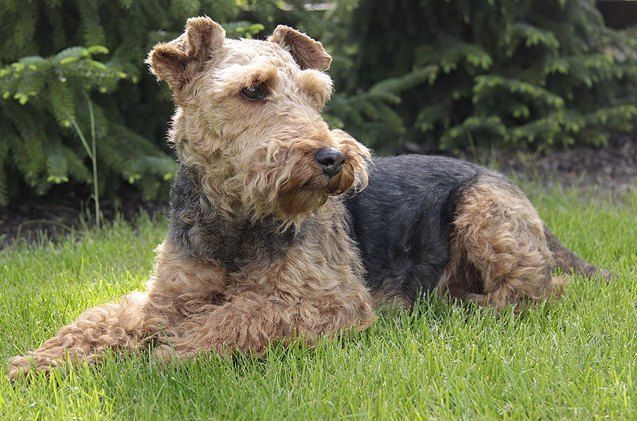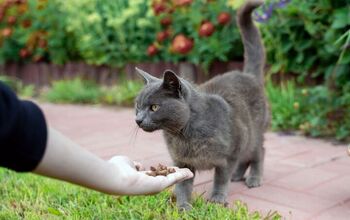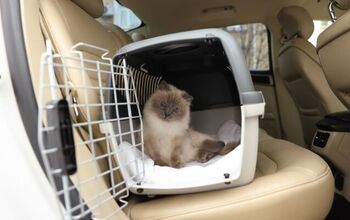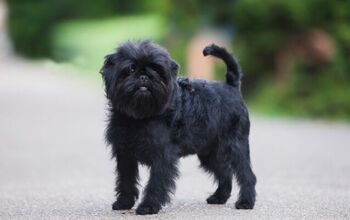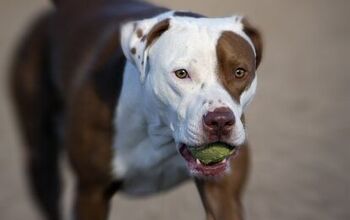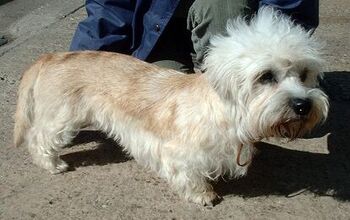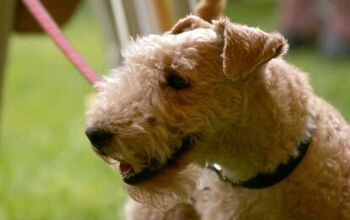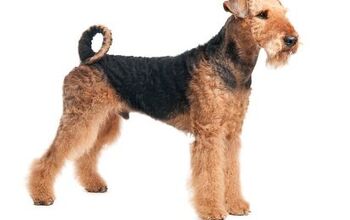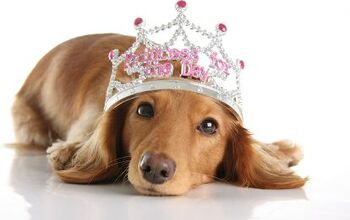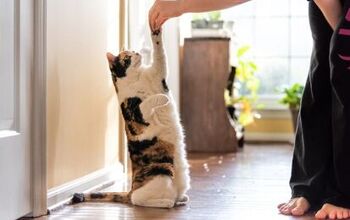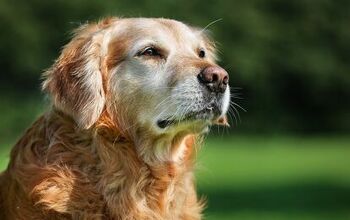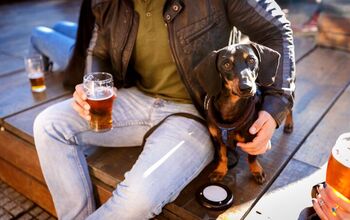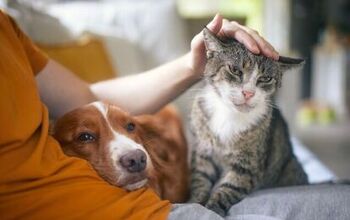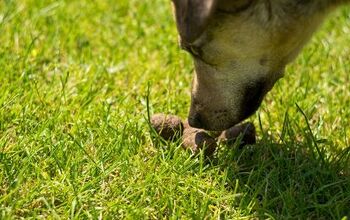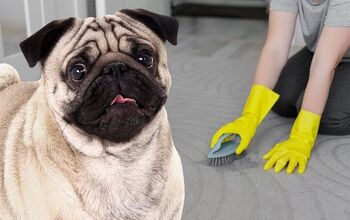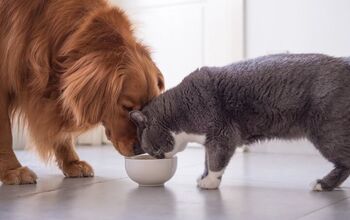Welsh Terrier


About Welsh Terrier
With personality plus, the Welsh Terrier is an outgoing and playful dog. This breed will keep his family entertained and in stitches for hours with his silly, comedic antics. Always ready to put on a show, the Welsh Terrier will happily run around the house with socks attached to him by static cling or dust bunnies attached to his facial hair. With this little guy around, laughter is unlimited.
Lovingly referred to as Welshies, this breed’s fanciers have found that the dogs are really intelligent. They are easily trained, so long as the owner has treats and praise for them. This energetic pooch is a great companion for families with kids who are active. For more information about Welsh Terriers, please read on.
With personality plus, the Welsh Terrier is an outgoing and playful dog.
Originating in Wales, the Welsh Terrier is considered to be one of the oldest of the terrier breeds. Old paintings have been found that depict this dog hence the belief in its antiquity. Bred to be an earth dog, he hunted otters, foxes, badgers and other vermin. Today, he will gladly chase off any varmints in your home or yard and provide loving companionship to the family.
It has been speculated that the Welsh Terrier has descended from several crosses and breeds. Lakeland Terriers, Irish Terriers, Airedale Terriers and Broken-Coated Black and Tan Terriers are said to be this breed’s ancestors. In 1888, a dog named Dick Turpin hit the dog show scene with all four paws going strong. He was such an incredible breed representative that Great Britain wanted to rename the breed as the English Terrier. That didn’t fly with the Welsh and his name has stayed the Welsh Terrier since.
An active dog, the Welsh Terrier needs a diet of high-quality, dry kibble made specifically for active dogs. Soft foods can cause tooth decay, gum disease and plaque buildup which results in bad breath. Dry kibble is best for this dog.
Welsh Terriers are rather bright dogs making them quite easy to train.
Welsh Terriers are rather bright dogs making them quite easy to train. You must keep in mind that Welshies do have independent streaks so training should be made fun and rewarding. This breed enjoys yummy snacks as rewards for doing a good job while training. Early training is best for the Welshie as he tends to believe that he is the one in charge of the household. This is never a good thing. With early training, the owner will always be seen as the Alpha in the pack, keeping the Welsh Terrier in his rightful place.
Welsh Terriers weigh less than 20 pounds and stand between 14 and 15 inches tall at the withers.
Welsh Terriers are not your typical terriers. Although they are spunky and fiery balls of energy, this breed has a sensitive side to them. Welshies enjoy relaxing with their families and getting calm and loving attention by night. By day, they are happily playing ball, seek, Frisbee, tug of war or simply just running like a maniac about the house and yard. A high energy breed, the Welsh Terrier would rather be playing than anything else in the world.
Welshies seem to get along with everybody. They enjoy playing with other pets, kids and even strangers, providing the dog is properly socialized. This breed will alert the family to every sound that he hears and every sight that he sees. Unfortunately, this early warning system can have you and your neighbors putting in earplugs. Because the Welshie is easily trained, the dog should be taught to quiet on command at an early age.
The Welsh Terrier is a relatively healthy breed however; there are some health concerns associated with it. Epilepsy and thyroid disease have been diagnosed in the breed. Eye problems such as lens luxation and glaucoma are also problematic for the dogs. Welsh Terriers are prone to skin allergies as well.
The average Welsh Terrier lives to be between 13 and 15 years old.
Welshies are small in stature but big on exercise. They need vigorous activities to be happy and calm in the house. Three or four brisk walks daily will suffice for a day or two but they really need a place to run and play as well. Welsh Terriers can live quite comfortably in apartments or condos providing the owners are dedicated to walks and trips to the dog park a few times a week.
This breed makes wonderful family companions. Their need for exercise will keep both children and the dog busy and active. Welshies can become terrible housemates without enough exercise. Mentally stimulating toys can also provide the dog with an outlet during inclement weather.
Welshies seem to get along with everybody.
The American Kennel Club writes: “The Welsh Terrier is a friendly and spirited breed. Their intelligence and desire to please are evident in their attitude. Welsh Terriers are friendly, outgoing to people and other dogs. They are usually patient with children and can withstand a bit of rough play, but can be difficult to housebreak. They are best suited with a young, active family. Welsh Terriers like to chase after things, so they shouldn’t be let off lead except in an enclosed area. They need to have their coat plucked several times a year and their bushy facial hair should be combed twice a week.” The Welsh Terrier was recognized by the American Kennel Club in 1888.
Welshies have a soft undercoat with a harsh and wiry topcoat. This double coat is waterproof to protect him from the elements. Black and tan is the only accept color combination acceptable for the breed. The head and legs are tan while the jacket can be black or grizzle.
Regular grooming is a necessity for the Welsh Terrier. Although he sheds minimally, he needs to be thoroughly brushed three or four times a week. The coat should be stripped out every season. Bathing is only needed when the dog is dirty or becomes smelly.
Welsh Terrier puppies are cute as can be, but they can be mischievous. Those sweet, little pups can be devils in disguise. Puppy kindergarten classes are essential for the Welshie. This will give them the basics as well as establish you as the leader in the home. Socialization is very important to ensure that the Welsh Terrier is well-adjusted and adaptable to all situations.
Photo credit: Shleiderbmx/Wikimedia Commons; Robynrg/Shutterstock; Eric Isselee/Shutterstock

Amy Tokic, Editor of PetGuide.com, is a passionate animal lover and proud pet parent of Oscar, a Shih Tzu/Chihuahua cross, and Zed, a Japanese Chin. Her love of animals began in kindergarten, when she brought her stuffed dog Snoopy into class with her every day. Now, she writes about her adventures in pet ownership and tirelessly researches products, news and health related issues she can share with other animal enthusiasts. In her free time, Amy loves perusing used book and record stores, obsessing over the latest pet products available and chasing squirrels with wild abandon (a habit attributed to spending too much time with her pooches).
More by Amy Tokic



